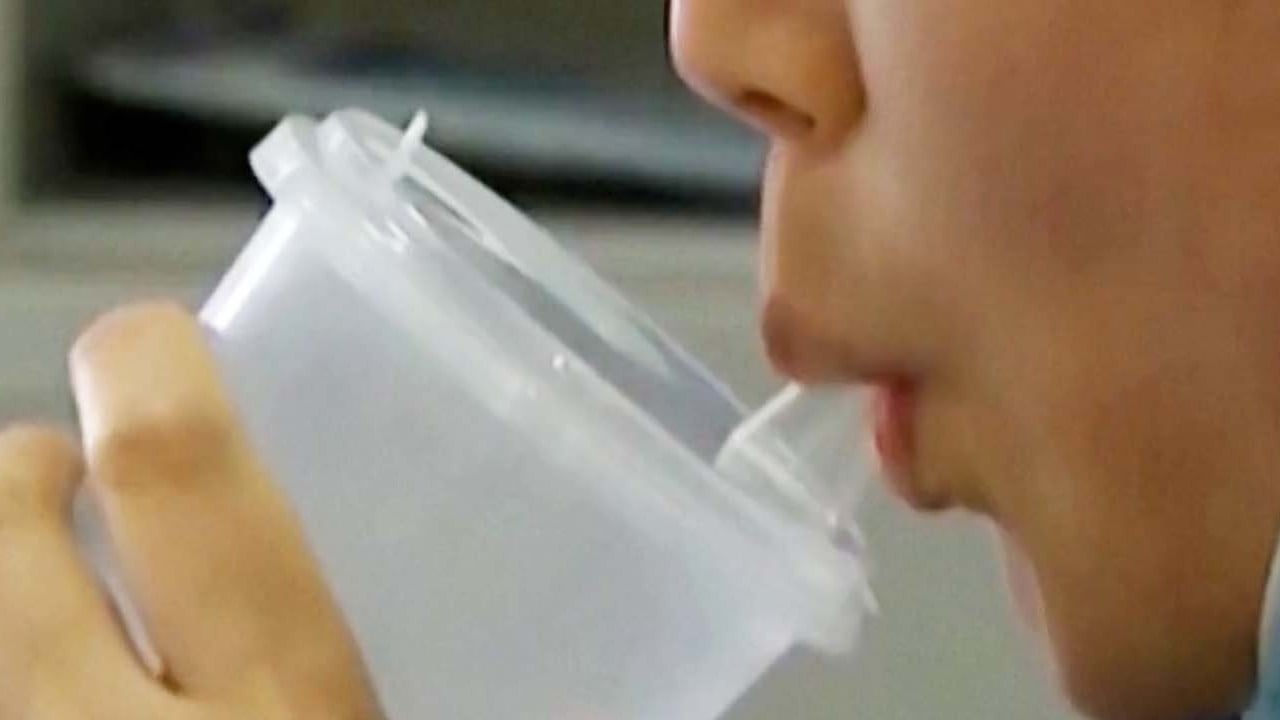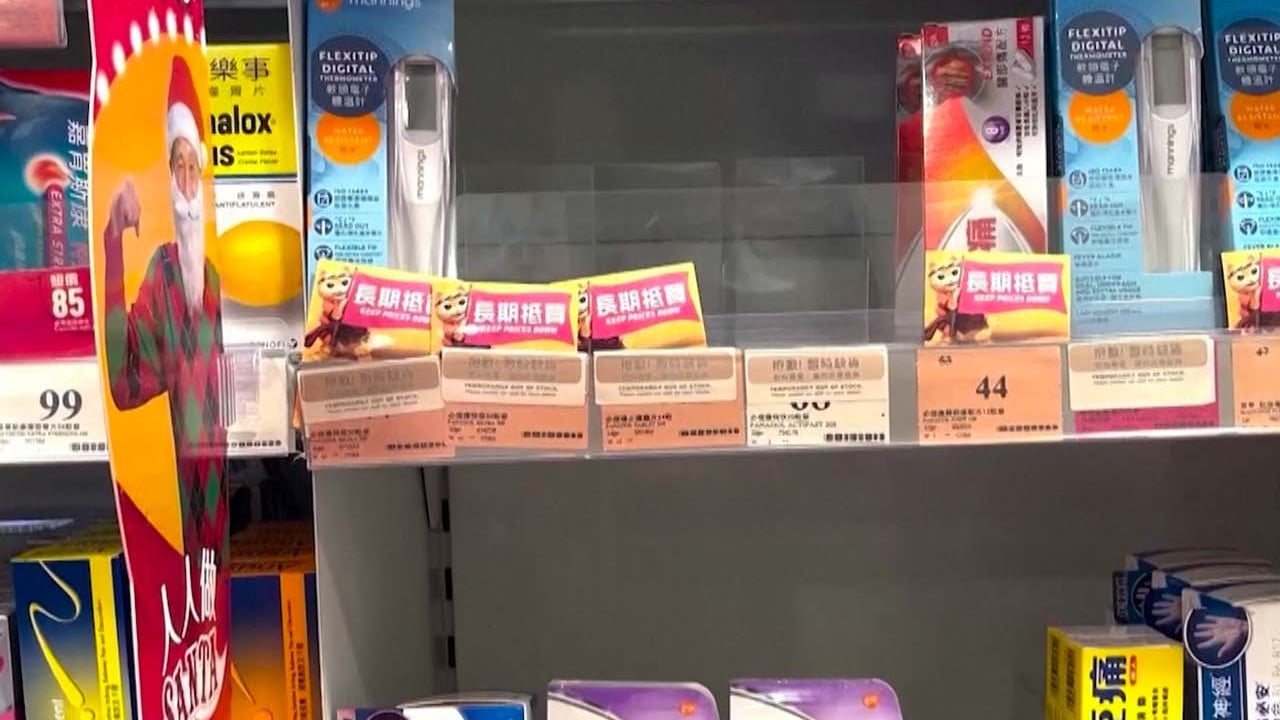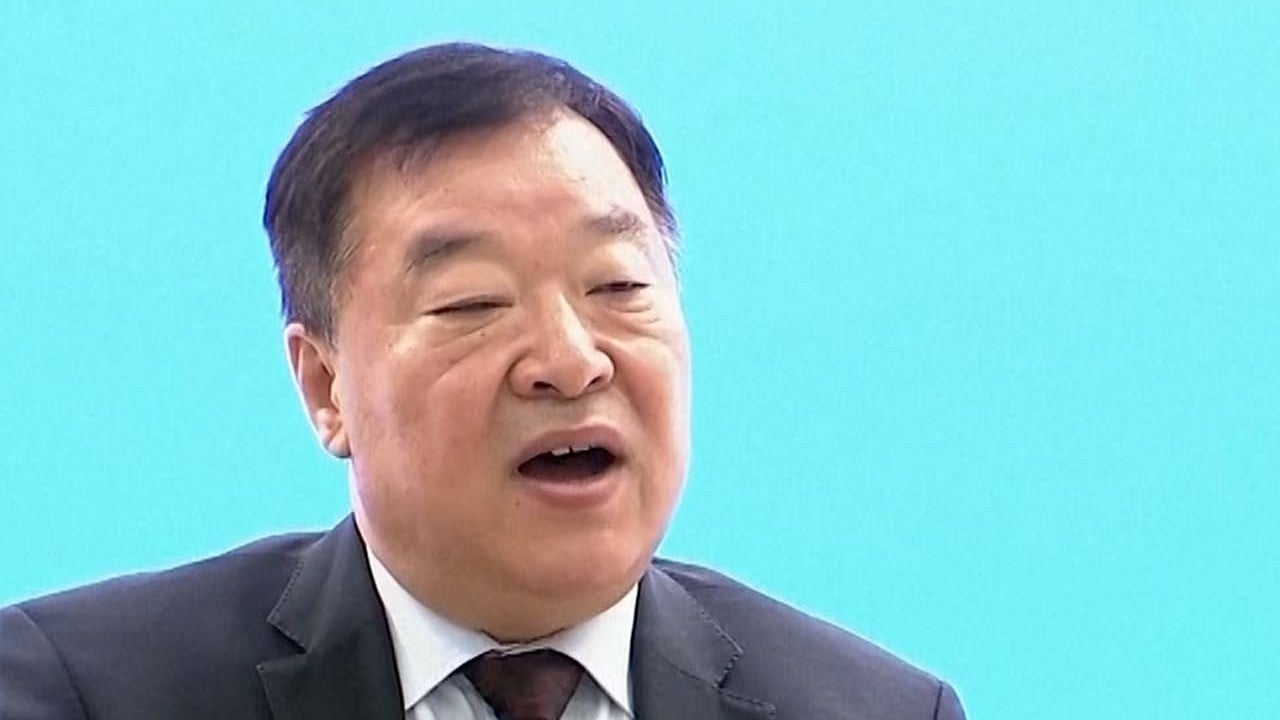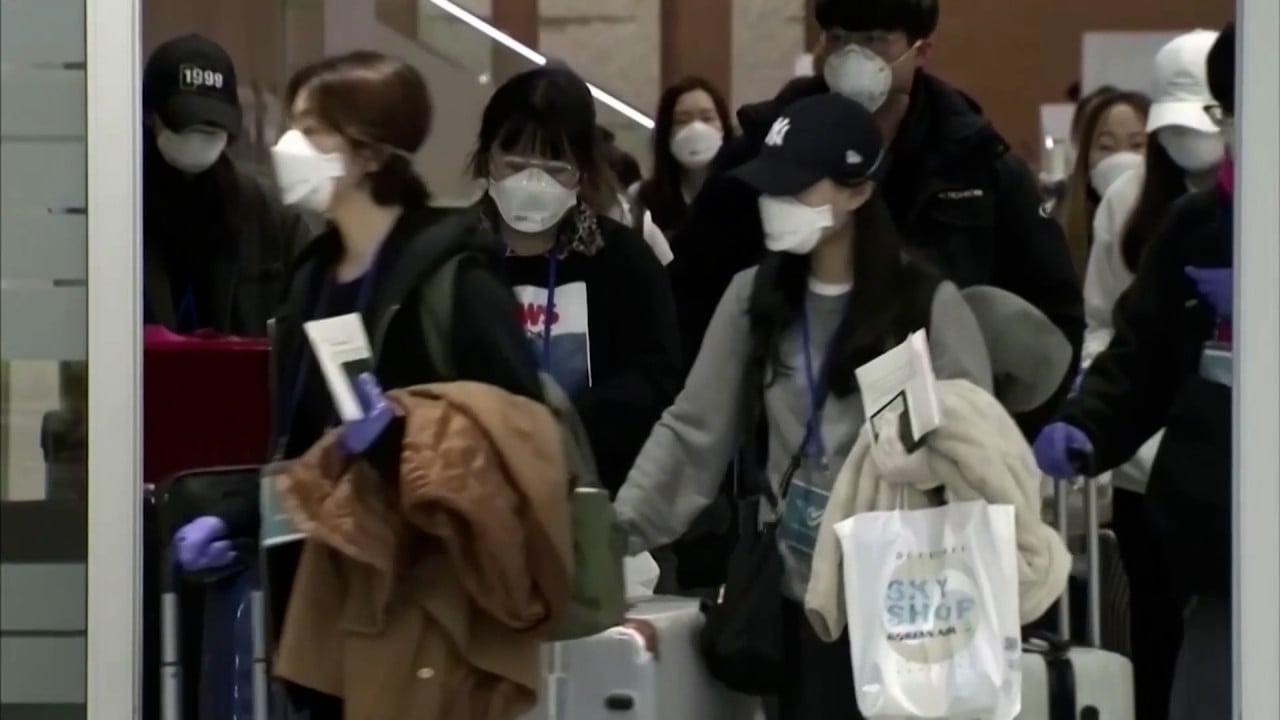
China’s Covid vaccines can protect the Chinese people: why foreign mRNA jab imports look unlikely for Beijing
- Vaccines in our country are safe and effective, NHC spokesman tells foreign diplomats in Beijing
- Representatives from 130 countries attended the briefing, as concerns grow about Covid-19 surge in China
“Practice has proven that the vaccines in our country are safe and effective,” National Health Commission spokesman Mi Feng told foreign ambassadors in Beijing. “We also believe that China’s vaccines can protect the health of the Chinese people as well as people in some other countries.”
China must import mRNA vaccines to stop Covid-19 ‘disaster’: US health experts
While the NHC briefing with foreign envoys took place on Friday, the transcript was posted on the official social media account of the ruling Communist Party’s international liaison arm on Saturday.
Diplomats from Mongolia, South Africa, Algeria, Ecuador, El Salvador and Madagascar were among the representatives from 130 countries who attended.
Mi said China had the world’s largest Covid-19 vaccine production line – capable of turning out more than 7 billion doses every year – and had already provided over 2.2 billion vaccine doses to more than 120 countries and international organisations.
China’s Wang Yi visits Philippines promising free Covid-19 vaccines, economic support
Research and development of Chinese vaccines “covers all technical routes”, Mi told the guests, amid rising concerns over the coronavirus wave sweeping China following the lifting of its strict zero-Covid policy last month.
The most widely administered Chinese vaccines – from Sinovac and Sinopharm – are of the inactivated variety, which use the older but well-proven technology of injecting a killed or inactivated form of the virus.
The mRNA vaccines on the other hand, like those from Pfizer-BioNTech and Moderna, direct cells to produce copies of the coronavirus spike protein. Both techniques can trigger an immune response.
What are the coronavirus mRNA vaccines and how do they work?
Two doses of the Sinopharm vaccine can provide 79 per cent protection against Covid-19 symptoms and hospitalisation, compared with around 95 per cent for the Pfizer-BioNTech and US-made Moderna vaccines, the World Health Organization said in June.
Several Chinese companies have been developing mRNA vaccines, including Sinopharm and CanSino.
CanSino said a “phase 2b” trial for its vaccine had elicited 23 to 29 times more antibodies than an inactivated jab when given as a booster to those who had already received three shots.
According to CanSino, the first phase of its mRNA vaccine production could turn out 100 million doses.
However, it could take many months for new vaccines to be approved and made available for widespread use.
The US, which has delivered around 60 per cent of the 1.1 billion vaccine doses that it pledged to donate, offered to share its vaccines with China in December – after Beijing relaxed Covid-19 restrictions.
“We’re prepared to continue to support people around the world, including in China, with this and other Covid-related health support,” State Department spokesman Ned Price said, adding that they had provided supplies to countries “regardless or in spite of any political disagreements”.
Mainland Chinese head to Macau to get mRNA vaccine unavailable at home
The European Union has similarly offered to share its mRNA vaccines, without specifying the amount and manufacturers. The Chinese foreign ministry responded by saying supplies in the country were “adequate” and could “meet the demand of anyone who wanted to be vaccinated”.
“Our country has a principle when choosing vaccines: to comprehensively consider the safety, effectiveness, accessibility and affordability of vaccines, and to adhere to laws and regulations and respect science,” Mi said, adding that 90 per cent of the Chinese population had been fully vaccinated.
Wu Zunyou, chief epidemiologist at the Chinese Centre for Disease Control and Prevention, said vaccines produced in China could fully meet demand.
“China is one of the countries with the largest vaccine production capacity in the world. We have the technical ability to develop effective vaccines that meet the needs of epidemic prevention and control,” Wu told Friday’s briefing.
Outbreaks were reported after the removal of most pandemic control measures late last year, with long queues outside hospitals and locals complaining about the lack of supplies such as fever medication.
China stopped reporting official infection figures after compulsory PCR testing requirements were lifted.
But as cases surge, the World Health Organization has called for more transparency from Beijing, including reliable data on hospitalisations and real-time viral sequencing.
Several countries have mandated negative Covid-19 tests for travellers from China, though some scientists have called the demand unscientific and ineffective at controlling the international spread of infectious diseases.
Liang Wannian, head of the NHC’s expert panel, said China’s recent adjustment for Covid control measures was neither an impulsive nor passive decision.
“This adjustment is based on our concept of epidemic prevention and control, which puts people and lives first; based on the need to balance and coordinate [policy and strategy] with socio-economic development; and based on considerations of the international and domestic [situation],” Liang said.
China’s core considerations for its Covid-19 response were that it must be lawful, scientific, safe and effective, Liang added, while reiterating China’s commitment to deepening exchange with the WHO.
“Countries are affected by their own political, economic, cultural, population, and even natural factors. It is difficult to say that any one measure or strategy will be effective in any given country.”





